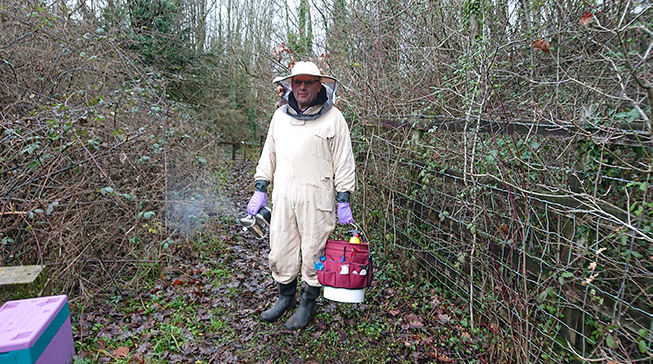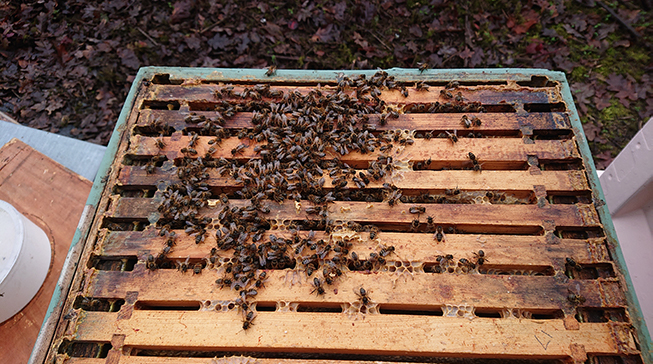University of Texas scientists have developed a potential cure for the most common killer of bees.

A University of Texas study could prove as a turning point in sustaining our bee population. In the past 100 years, the number of bee hives in the UK has decreased by around 75%.
The scientists at the University of Texas engineered a bee gut bacterium that blocked replication of varroa mite, the most common parasitical killer of bees, for at least 15 days.
Bees are a vital part of our food supply and they contribute around £651m per year to the UK economy.
“We really need a biological control” – Beekeeper
“We really need a biological control as bees don’t like anything that they didn’t create themselves,” said Harold Williams, a Cardiff-based Beekeeper.
“Varroa mite are becoming more resistant and pose an ever-present threat. I have been a beekeeper for over 40 years and varroa mite has only existed in this country for about 20 years,” said Harold.
“When a queen lays an egg, varroa mite will lay an egg there that will hatch. They are a parasite,” said Nick Mensikov, Vice-President of Cardiff Vale & Valleys Beekeepers Association.

Varroa mite haven’t always existed in the UK
“They were imported from the Far East where the bees are adapted to dealing with the mite. Our bees aren’t adapted to them. If we let things as they are the varroa could end all the bees.
It is difficult to kill varroa mite, according to Nick: “ApiGuard (a gel) will kill the mites but it will also kill some of the brute as well, so it’s a balancing act.”

Varroa mite are not the only bee killers
Despite the positive findings, there are several other diseases bees can suffer from. Potential cures for these have yet to be developed.
“There’s also the European foulbrood. It’s one of the big killers of bees. If you have them you have to declare it so inspectors come, dig a pit in the garden and burn the hives, including the bees,” said Nick.
Are you interested in bees? Take our Bee Quiz!
var app_5e442fae0e03570014c5acc7;(function(d, t){var s=d.createElement(t),options={“appId”:”5e442fae0e03570014c5acc7″,”aspect_ratio”:”100%”,”async”:true,”host”:”quiz.tryinteract.com”,”footer”:”show”};s.src=’https://i.tryinteract.com/embed/app.js’;s.onload=s.onreadystatechange=function(){var rs=this.readyState;if(rs)if(rs!=’complete’)if(rs!=’loaded’)return;try{app_5e442fae0e03570014c5acc7=new InteractApp();app_5e442fae0e03570014c5acc7.initialize(options);app_5e442fae0e03570014c5acc7.display();}catch(e){}};var scr=d.getElementsByTagName(t)[0],par=scr.parentNode;par.insertBefore(s,scr);})(document,’script’);